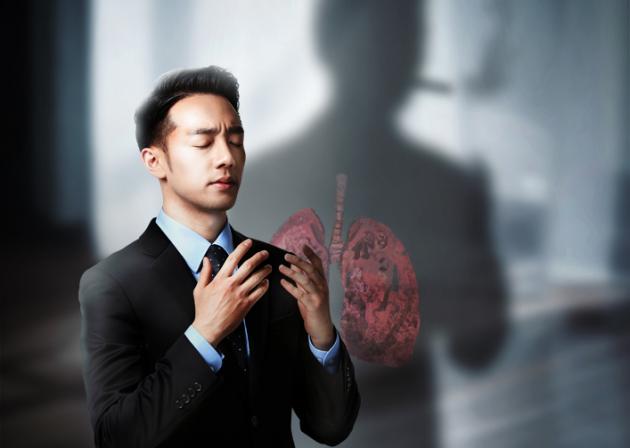The Korean Association for Lung Cancer (KALC) has set about to emphasize the importance of the early diagnosis of lung cancer.
Currently, the state-provided health check includes low-dose computed tomography (CT) to screen a lung cancer, but it is given only to people aged 55 or more with a high risk who have smoked a pack of cigarettes for more than 30 years.
However, the KALC said, the lung cancer screening should be mandatorily included in the “changeover-period” health checks, available to 40-year-olds and 66-year-olds, to enable an early diagnosis of lung cancer for a complete cure.

“Lung cancer patients suffer poor treatment outcomes because stage 1 and 2 patients, who can be completely cured, take up only 20 percent of the total lung cancer patients. To raise the survival rate, we should lift up the early diagnosis rate,” KALC Chairman Lee Kye-young said at a news conference on Tuesday.
Although targeted therapy and immunotherapy for lung cancer have gained popularity, they have failed to raise the patient’s survival rate, Lee noted. Under such treatments, patients with metastatic lung cancer had their survival periods going up only to three to four years from one year, he added.
“Although researchers are carrying out numerous studies on immunotherapy, such drugs are too expensive to buy, which requires the government’s market intervention,” Lee said.
KALC will make a concerted effort to raise awareness about the importance of an early diagnosis to elevate the cure rate of lung cancer, Lee went on to say.
The association plans to hold the “2017 Campaign for Non-smoking Women with Lung Cancer” at Konkuk University Medical Center in Seoul on Oct. 27. At the event, KALC will reveal a study on the risk factors of developing lung cancer in female patients.
Considering that 85 percent of female lung cancer patients are non-smokers, the study used big data on female lung cancer patients to analyze risk factors that can lead to lung cancer development in non-smoking women, KALC said, adding that the study is first of its kind in Korea.
“Lung cancer can develop in people who have never smoked in their life,” said Myong Jun-pyo, a professor at Catholic University of Korea’s College of Medicine. “Risk factors that raise the chance of developing lung cancer in women include old age, alcohol intake, lack of exercise, meat-centered diet, low body mass index and an experience of developing cancer.”

